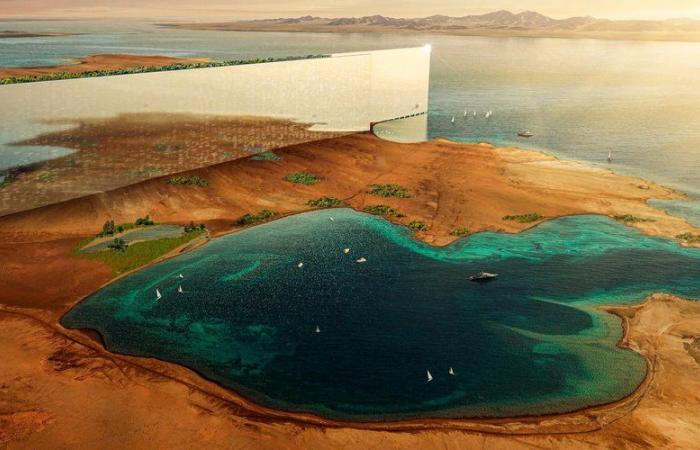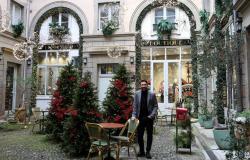
the essential
NEOM, the $500 billion futuristic city desired by Mohamed ben Salman, is accumulating difficulties.
The polished images of a sunny, luxurious, ultra-modern and technological paradise on earth, a model of environmentally friendly development, have flooded the web and fascinated the planet. But in the Saudi desert, a stone’s throw from the Red Sea, the most ambitious urban project ever imagined is about to turn from a dream into a nightmare.
NEOM, this futuristic city estimated at 500 billion dollars, crystallizes, in fact, all the contradictions of the Wahhabi kingdom in full transformation. Between architectural excess and social controversies, this pharaonic project, the cornerstone of Vision 2030 carried by Crown Prince Mohammed ben Salman, is struggling to convince today.
Announced with great fanfare in 2017, NEOM aims to be a technological showcase: flying cars, domestic robots, a phosphorescent sand beach and even an artificial moon. At the heart of the project, The Line, a linear city 170 kilometers long, entirely powered by renewable energies, should accommodate nine million inhabitants by 2045. A dizzying architectural challenge which raises numerous technical questions.
DR
But behind the slick computer graphics and the promises of a bright future, the reality of the construction site is darker. According to recent revelations from the Wall Street Journal, the site which employs nearly 100,000 workers is the scene of an alarming social situation. Fatal accidents, violence, suicides… The precarious living conditions of workers are reminiscent of the controversies which surrounded the construction of the World Cup stadiums in Qatar.
An alarming social situation
The difficulties do not end there. Despite the oil windfall, the kingdom is struggling to finance this titanic project. Private investors, although courted, remain cautious about a business plan considered risky. The hasty departure in 2023 of Director General Nadhmi al-Nasr, in charge since 2018, has only reinforced doubts about the viability of the project.
NEOM also crystallizes the political tensions running through the kingdom. For its detractors, this project embodies the authoritarian excesses of the crown prince. The expulsion of the Bedouin tribes who had occupied these lands for generations particularly aroused strong emotion. In 2020, the death of Abdul Rahim al-Huwaiti, who opposed his forced displacement, became the symbol of repression.
For Mohammed bin Salman, however, NEOM represents much more than a simple real estate project. It is the embodiment of his vision to modernize the kingdom and reduce its dependence on hydrocarbons. A showcase intended to attract foreign investors and diversify the Saudi economy.
But at a time when the country is facing a growing budget deficit, the relevance of such an investment raises questions. And eight years after its launch, NEOM remains a project with vague contours. If the work is progressing, particularly on The Line, the initial schedule already seems compromised and the dream of a Silicon Valley in the desert clashes with the economic and social realities of a country in full transformation.
This situation does not surprise Toulouse journalist Clarence Rodriguez*, a specialist in Saudi Arabia and who was a correspondent for 12 years in Riyadh. “This project is not directly aimed at the Saudis, that is to say it absolutely does not represent Saudi Arabia,” she observed recently in the Arte program “Le sous des images”.
“Mohamed bin Salman creates a diversion”
“What struck me [dans les vidéos promotionnelles] it is the omnipresence of these women who have been reclusive for a long time, who have been relegated to homes and we did not see them at the front of the stage. Except that they are not Saudi women,” notes Clarence Rodriguez.
“Through these videos, Prince Mohammed bin Salman actually wanted to seduce, flirt with international investors. He wants to show that Saudi Arabia is on the road to modernity. But Mohamed bin Salman is creating a diversion. Meanwhile we don’t “I don’t talk about human rights, about everything that affects Saudi Arabia, including unemployment which affects many Saudis,” she said.
Behind the utopia lies an implacable reality.





